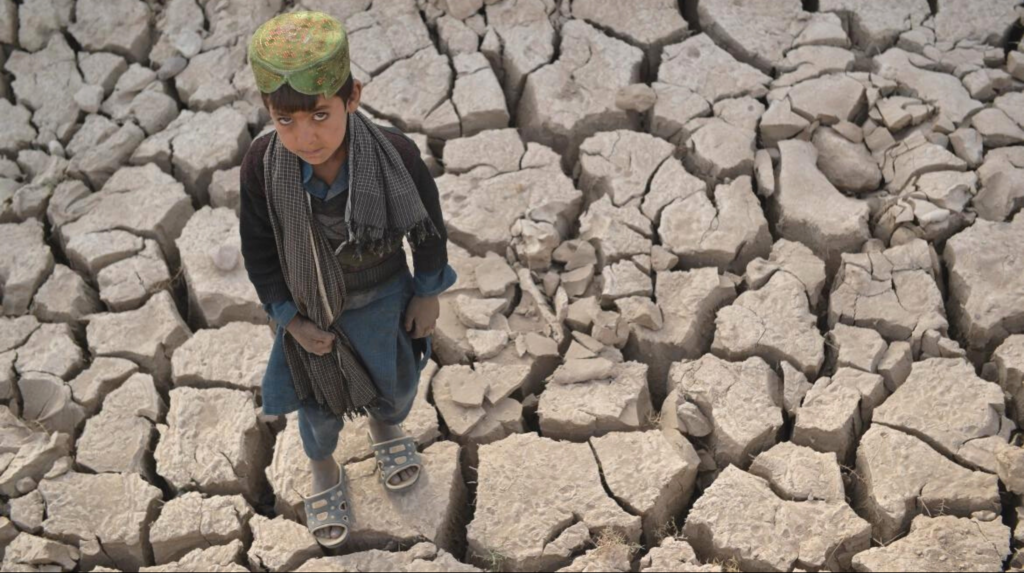Updates & Press
Blog Featured | October 29, 2021
Weekly Humanitarian News Digest – October 29
Author | MedGlobalComms

Cover Image: Hoshang Hashimi/AFP
Latest News for October 22 – October 29, 2021
Afghanistan
Detrimental climate effects further the humanitarian crisis in Afghanistan. More than 22 million Afghans will face food insecurity this winter due to the political instability, economic crisis and lack of rainfall affecting farmers. The hunger and desperation people face places women and children in danger as more families are forced to sell their young daughters into marriage to survive. (Al Jazeera)
Millions of Afghans could soon die of starvation if funds are not freed for humanitarian aid. Two months ago numbers stood at 14 million, now 22.8 million people are facing acute food insecurity. The food crisis, climate change and the economic collapse following the Taliban takeover is soon to cause a collapse which will trigger a migration crisis resembling the 2015 Syrian migrant crisis. (Al Jazeera)
Bangladesh/ Myanmar
Days of violence against Hindus in Bangladesh leaves many killed, injured and houses and temples destroyed. This was the largest act of mob violence against Hindus in the country’s history. The violence began after rumours spread on social media that the Quran was being insulted by Hindu community members. Security forces had to be deployed to control the riots. (BBC)
In Myanmar, 97 attacks and threats to health care workers, facilities, and transports have been reported since the military coup in February. The vast majority of these incidents were enacted by Myanmar’s armed forces. Health facilities have been used as sites of repression and explosive weapons are used around the centers. Health workers are vulnerable to violence and detention for continuing to provide care. (PHR)
Colombia/ Venezuela
Haitians unable to cross to Panama are stuck in Colombian towns. Necolí, a beachside town, has doubled in population. Migrants have set up temporary shelters and businesses to maintain themselves as they wait to continue their journey. The journey will last from months to a year from Colombia to the U.S.-Mexico border. (Local10)
Venezuelans return to school with only 22% of the population vaccinated, raising concerns of further COVID-19 spreads. Medications and other necessities are scarce and a spike threatens to exacerbate the vulnerabilities of families in Venezuela’s continuing crisis. At least 8.7 million children returned to schools and 3.1 million students returned to universities. (Al Jazeera)
Gaza/ Palestinian Territories
Health conditions of Palestinian hunger strikers raise alarms. Miqdad Al-Qawasmeh and Kayed Nammora (Fasfous) have been on hunger strike for almost 100 days inside Israeli jails. Groups express growing concern for the conditions of these prisoners. (Middle East Monitor)
Haiti
Lack of fuel in Haiti threatens to shut down the country amidst the ongoing humanitarian crisis. Fuel transportation fleets are on strike due to security concerns for their drivers and the government cannot provide protection against gangs. Haitians face a hunger crisis, common kidnappings, and soon hospitals will be unable to sustain themselves because of the fuel crisis. (NY Times)
India
Climate migration in India is fueled by droughts, floods and heatwaves. India is ranked in the top 10 countries most affected by climate change. People are being forced to leave their homes to survive due to destruction of crops, lack of work, or destruction of homes. The situation in India reflects a growing global phenomenon in migration. (Al Jazeera)
Lebanon
82% of Lebanese people are unable to afford at least one essential service, including healthcare, medicine, and education. Almost half of all doctors in Lebanon have left the country, leaving public hospitals understaffed and understocked for those that can access services. (Metro.UK)
Pakistan
Jacobabad is one of the world’s hottest cities and represents the crisis that climate change causes for vulnerable communities. Temperatures regularly exceed 50°C (122°F). The population of around 200,000 people suffers from extreme poverty and exploitative labour conditions. (Amnesty International)
Tear gas was fired during clashes at the Afghan-Pakistani border. This is a major border for trade and has been closed since the Taliban takeover. Afghans at the border trying to cross over have been met with resistance by Pakistani security forces. (Republic World)
Sudan
Military coup breaks out in Sudan this week, prompting protests from civilians across the capital. Civilian rulers who were responsible for the transition are currently under house arrest. This coup presents a high threat to pushing Sudan back into civil war. (BBC)
Sudan’s coup threatens regional stability, including the ongoing crisis in Ethiopia, which has caused thousands of Ethiopians to flee to refugee camps on the Sudanese border. Dozens of Sudanese have been injured in the protests and at least seven people have died in clashes. Internet and telecommunications have been shut down across the country. (VOA)
Syria
Attacks on Idlib raise concerns of further displacement and harm to civilians. Idlib remains the last Syrian rebel enclave. Turkish forces are also at risk from these attacks and the government has expressed concern over the refugee flow that could result from this conflict. (Modern Ghana)
Yemen
Yemeni’s displaced during fighting in Marib wait for aid in makeshift tents. This is the second time this region has been displaced in clashes over control of Marib. Already this year, 200-250 people have been killed in Yemen each month. (Reuters)
More than 260 people were killed in a matter of three days in Marib. Hundreds have been killed in battles in recent months in this oil-rich region of Yemen. The civil war continues with tens of thousands of deaths and millions have been displaced. (Al Jazeera)


